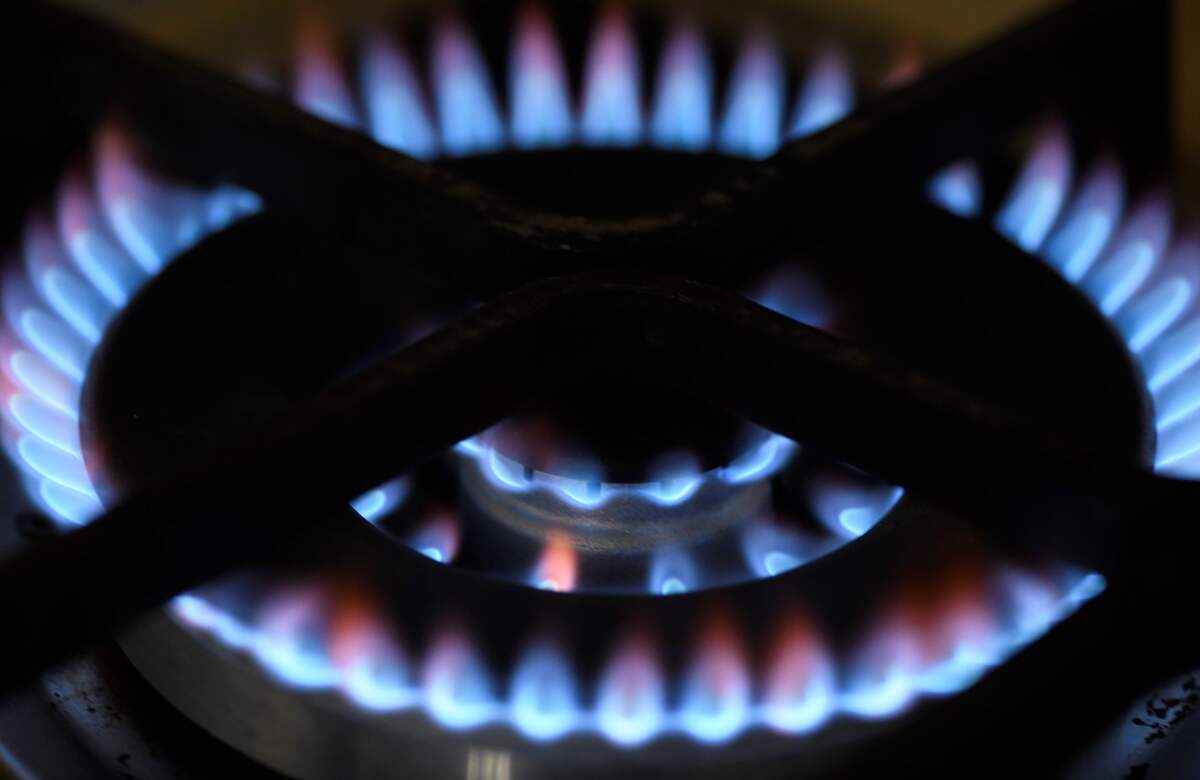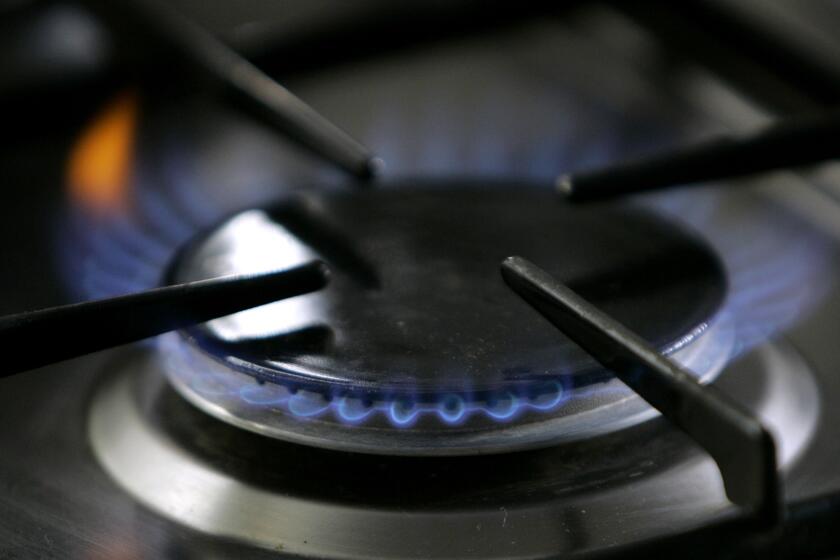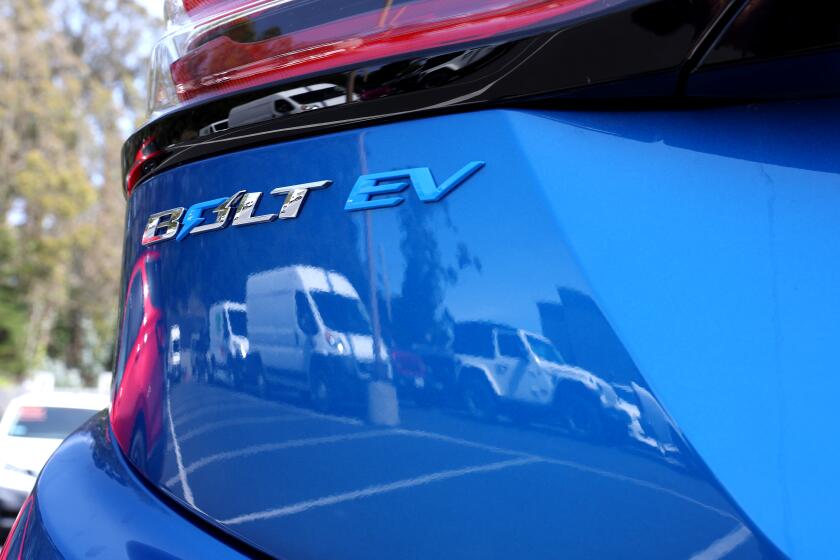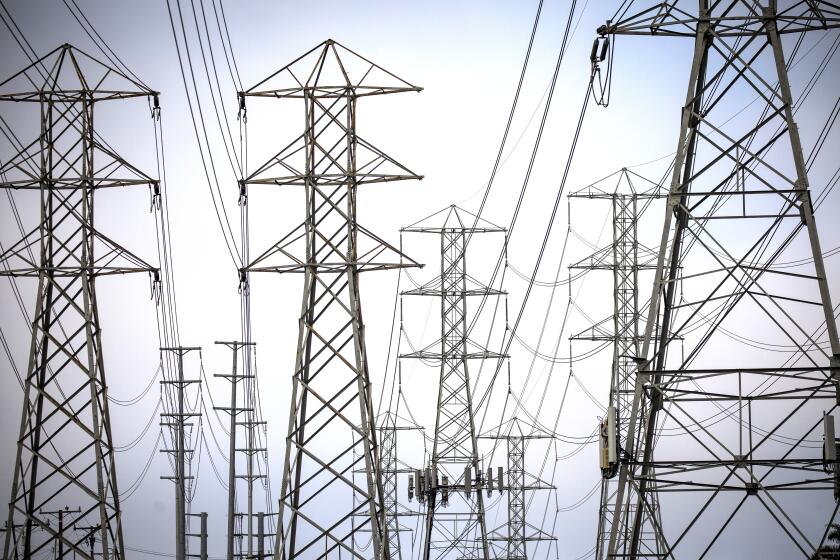Editorial: New York banned gas from new buildings. Why not California?

New York made climate history last week, becoming the first state in the nation to pass a law banning natural gas in most new buildings.
But here in Los Angeles, we admit feeling a tinge of jealousy that California wasn’t the first. Why not?
This is, after all, the state that’s declared itself a climate leader, adopted rules to end the sale of new gas-fueled cars, and where the city of Berkeley in 2019 enacted the nation’s first ban on natural gas piping in new buildings to curb the use of fossil fuels.
California is also, like New York, a blue state that’s heavily reliant on stoves, furnaces, water heaters and other appliances that run on polluting and planet-warming natural gas. About three-quarters of homes in California use gas for heating, cooking and water heating, which as the Energy Information Administration notes, is because of the state’s “expansive natural gas infrastructure.” Natural gas use in buildings is responsible for about 10% of California’s greenhouse gas emissions. Gas appliances also release health-damaging pollution that degrades indoor air quality and worsens smog.
Industry scored a win against local gas bans that have helped California cities stop the expansion of fossil fuel infrastructure.
To slow the climate crisis, we need to be racing to power homes, businesses and other buildings with electricity generated from clean, renewable energy. And it’s clear that the state can’t reach its ambitious climate and air quality targets if it doesn’t stop allowing fossil fuel infrastructure to expand.
So there must be some legislative proposal on the table, right?
Wrong.
Spokespeople for state Senate leader Toni Atkins and Assembly Speaker Anthony Rendon said there are currently no bills in the California Legislature to impose a statewide ban on natural gas hookups in new construction. And Gov. Gavin Newsom’s office wouldn’t say whether California should follow New York with its own law.
Dozens of California cities and counties, including Los Angeles and San Francisco, have adopted measures to ban or discourage gas hookups in new construction or move to an all-electric building code. But some of those local efforts are in doubt because of a decision last month by the U.S. 9th Circuit Court of Appeals that sided with the California Restaurant Assn. in its challenge to Berkeley’s 2019 gas ban. That uncertainty is a setback for climate action but also points to the benefit of a statewide approach.
The trend toward bigger, heavier electric vehicles is not good for the planet. Regulators need to push back to encourage more smaller, affordable models from carmakers.
It’s possible the state could craft a policy to avoid the legal questions raised in the Berkeley decision. There are also other advantages to state-level action, “such as having a uniform statewide requirement and relieving smaller municipalities from having to develop complex requirements that are administratively burdensome to oversee,” said Amy E. Turner, a senior fellow at the Sabin Center for Climate Change Law at Columbia Law School.
Building electrification advocates hope that New York’s law, which starts taking effect in 2026, will be a model for other states, but emphasize there are several ways to achieve the same outcome. Washington, for example, changed its energy code last year to require buildings be heated with electric heat pumps instead of natural gas.
State and local air quality regulators in California are already moving to require new space and water-heating appliances be zero emission. What’s preventing state leaders from taking similar action to ensure new buildings are all electric, even if it’s through tougher building codes or emissions standards rather than a prohibition on gas piping?
That’s not to say California hasn’t made made progress in recent years.
Daniel Villaseñor, a Newsom spokesperson, pointed to a number of state climate policies that “are aggressively moving the state away from fossil fuels and towards electrification,” including a goal set last year to install 6 million heat pumps by 2030 and $1 billion set aside in last year’s budget to help Californians upgrade their fossil fuel appliances to electric models.
California is moving to an income-based formula for electric bills. Regulators should proceed cautiously and not give the utilities the high fees they want.
California has also updated its energy code to require new buildings to be “electric ready,” meaning they must be built to allow electric appliances to be installed easily in the future. The new code, which took effect earlier this year, encourages, but does not mandate, the installation of electric heat pumps and other zero-emission equipment.
“It is designed to incentivize all-electric construction and we anticipate most projects will follow this path,” said Lindsay Buckley, a spokesperson for the state Energy Commission.
That’s not the same as establishing a firm deadline, like New York has, to ensure outdated gas pipes and equipment do not continue to expand, as fossil fuel companies would like.
To continue carrying the mantle of climate leadership, and protect the planet and public health, California needs to get serious about building electrification and join New York in drawing the line against new gas appliances and infrastructure.
More to Read
A cure for the common opinion
Get thought-provoking perspectives with our weekly newsletter.
You may occasionally receive promotional content from the Los Angeles Times.













